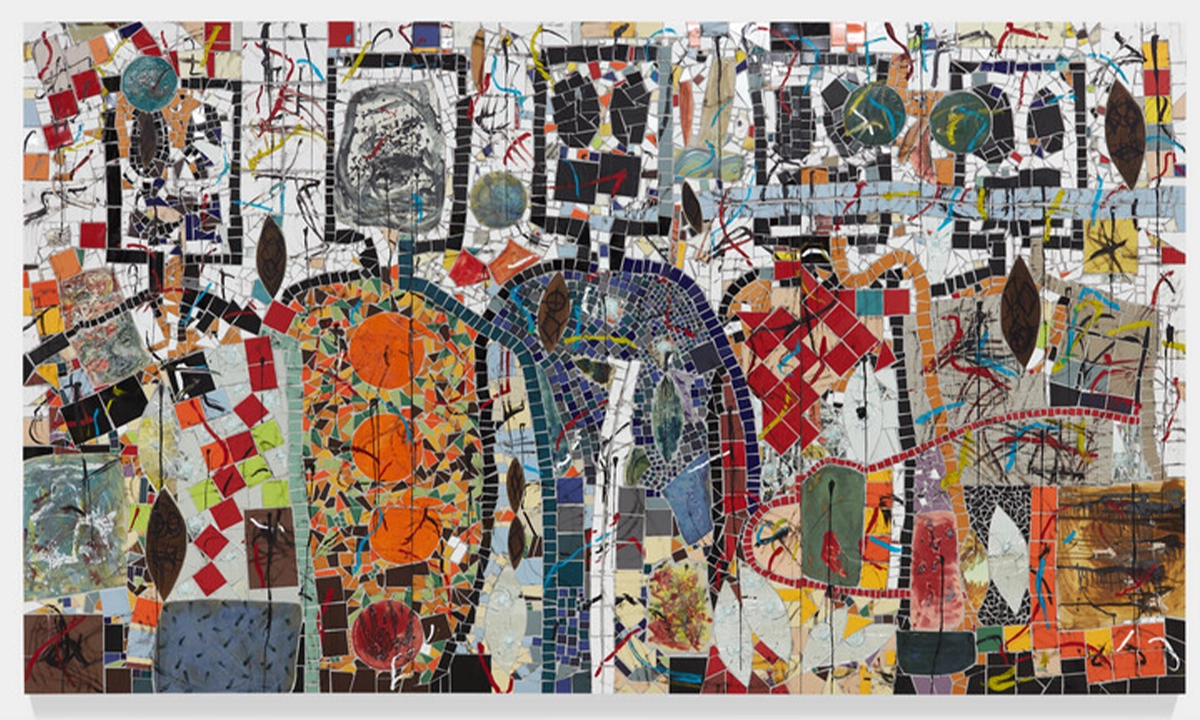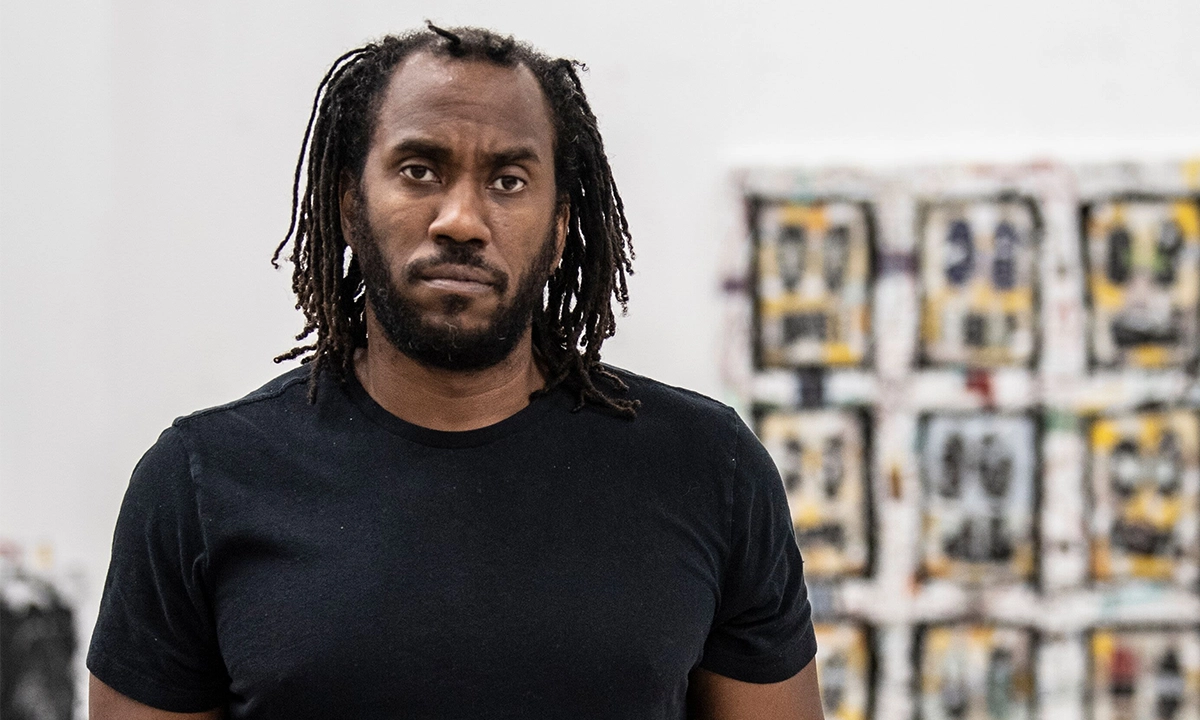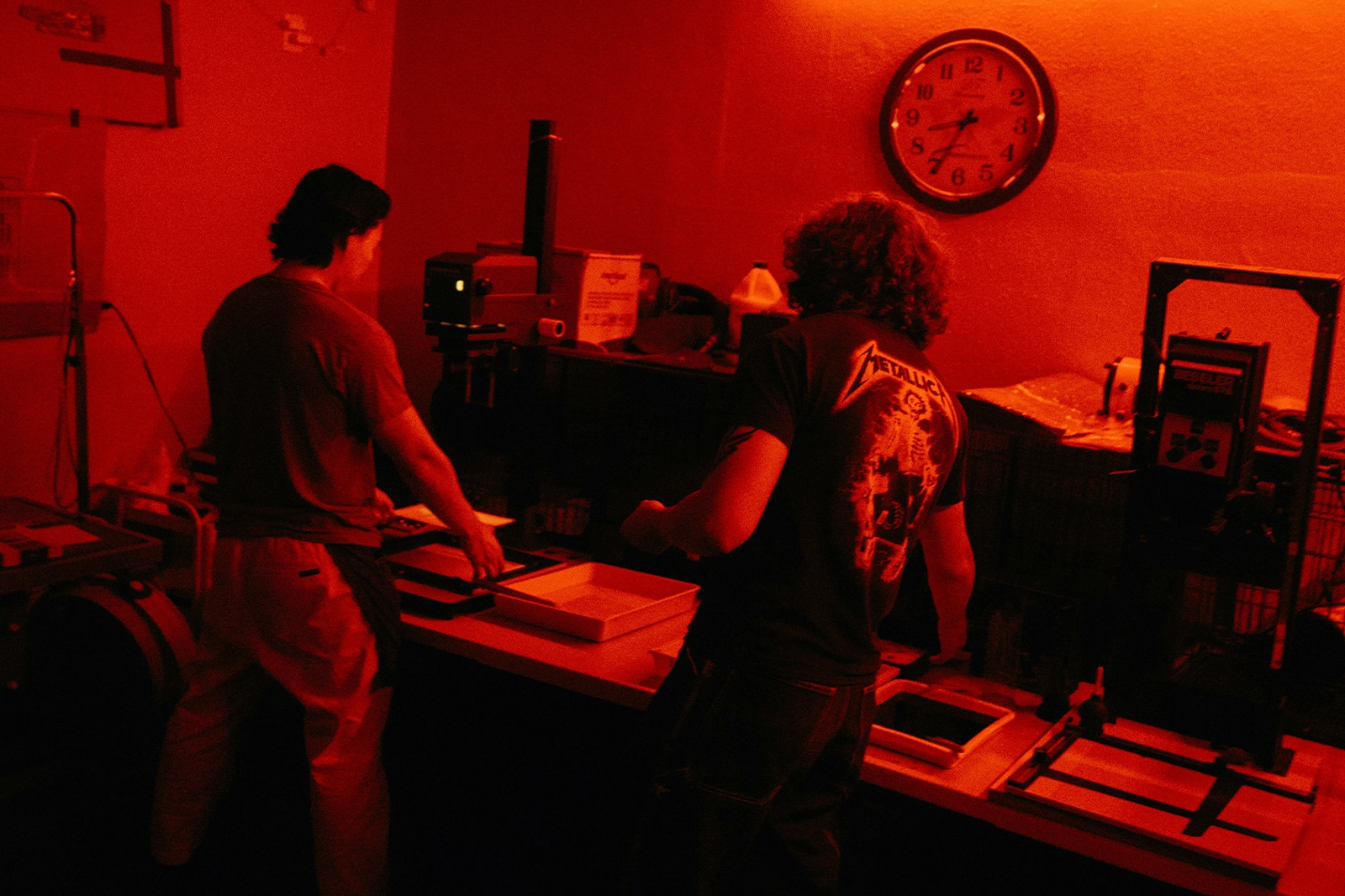An intimate look at Johnson’s work as a visual language for vulnerability, ritual, and care.
Making Emotion Physical
Rashid Johnson's work does not whisper. It throbs. You can sense it in your body before you even make sense of what you see. His use of materials—soap, shea butter, white ceramic tile—is not about beauty, it is about self. These are care material, ritual material, naked material. They are body material, home material, the soft edges where feeling froths.
There is brutality to the way Johnson brings states of being into physical form. He does not simply depict emotion—he constructs with it. His work is language, one that obeys rules and rhythm. One that speaks in terms of repetition, texture, pressure, breath.
Anxious Marks and Unspoken Codes
Again and again throughout his life, Johnson has come back to the anxiety theme—not as subject, exactly, but almost as a presence within the painting. Scribbled faces recur, repeatedly, faces written and staring-eyed, heavy. But they are codes, not cartoons. Emotional messages. Echoes of inner voice that cannot be read.
There is something fundamentally human in this repetition. These nervous lines aren't about finding pain. They're about calling it by name. Pressing it down long enough to stay with it. That's Johnson's genius—that he makes the fleeting real enough, gives it enough definition, to make it tangible.

Ritual, Memory, and Material
Johnson's materials are not just transporting personal memory, cultural memory. Shea butter is not so much a symbol, it's an container of experience. Black soap is not so much texture, it's heritage. The plants, the books, the buildings, they are all engaged in something greater than composition. They do ritual. They instruct the viewer to move slowly, observe, and even remember something of themselves.
His work doesn't tell us how to feel it suggests. In a way, it's not so much about making things as it is about creating space. Emotional spaces made of things, past, and intuition.
A Practice of Care
There is a sort of care in Johnson's work that it's possible to forget.It's in the curation of the materials. The consideration of how the thing goes down. The layering of signifiers without trying to force resolution. This is not art meant to bludgeon with luster, it's art meant to engage in being present.
At a moment when vulnerability is commodity or aestheticized, Johnson's work seems earthed. It does not overheat itself. It just is. Raunchy, beautiful, alert. There is strength in that restraint. There is clarity in the mess.
A Creative Language All His Own
Rashid Johnson has created a visual lexicon that refuses to cooperate. He borrows from abstraction, symbolism, performance, and personal ritual—but never to the end. That refusal to be reduced is part of why it feels so vibrant. He's not constructing to impress. He's constructing to say something.
What's strongest isn't what Johnson reveals to us, but the way he reveals it. He doesn't define emotion or identity, he builds spaces in which they're Lived. Witnessed.
Final Thought: A Space Made from Feeling
Rashid Johnson: A Poem for Deep Thinkers is not a declaration, it's a space. A space where anxiety has weight. Where recollection has substance. Where compassion has structure. His pieces don't have to yell to be powerful. They just make you sit with it, hear, and feel something real. Because that’s what great art does. It gives shape to what we carry.
I've been a huge fan of Johnson's for years, and this show just serves to foster all that admiration. His talent for transforming personal feeling into communal experience is one, and a fierce one. I'll be interesting to hear how his voice is going to continue to grow, and what he is going to do next.

.svg)

















